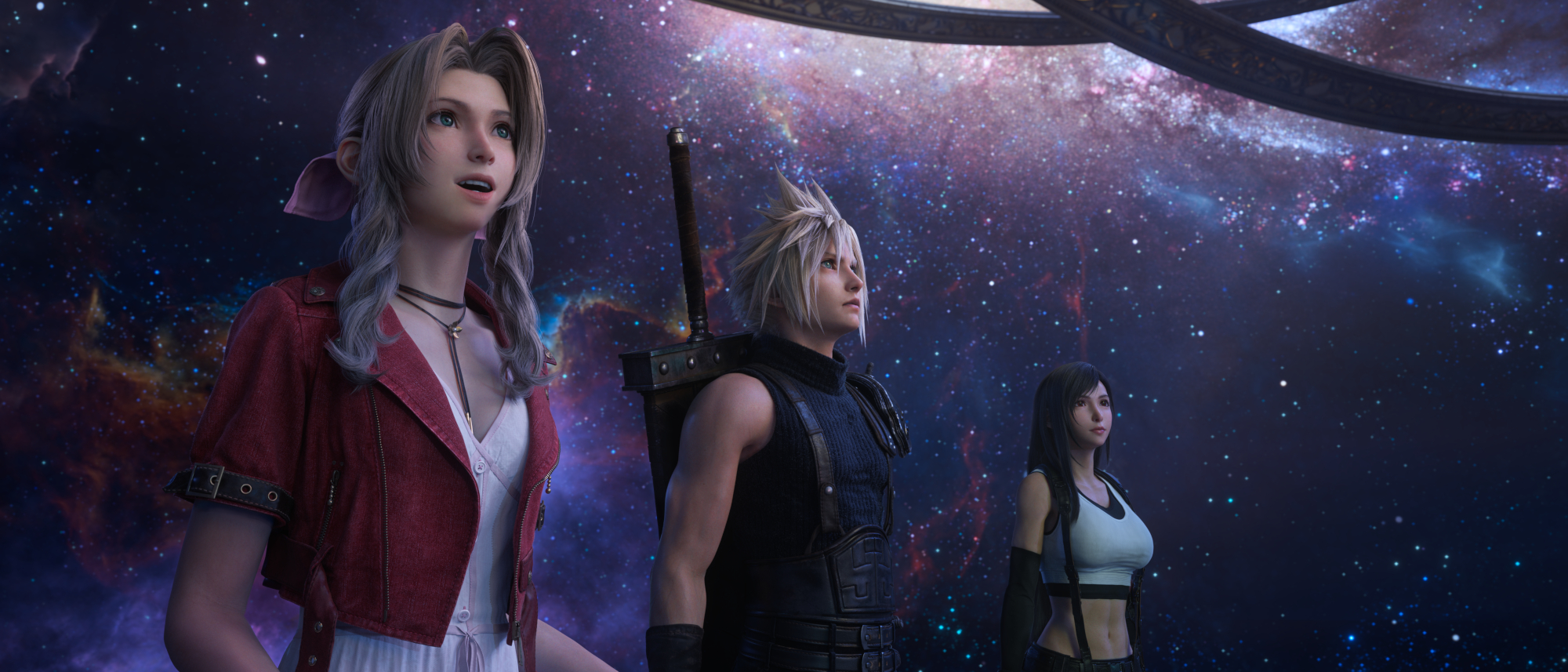Tom's Guide Verdict
Final Fantasy VII Rebirth is a phenomenal JRPG thanks to its stellar graphics, robust customization options and vast explorable environments. This is a PS5 exclusive worth buying Sony’s system for.
Pros
- +
Incredible graphics
- +
Engaging storylines
- +
Fun combat mechanics
- +
Huge worlds to explore
Cons
- -
Forced mini-games
Why you can trust Tom's Guide
Platforms: PS5
Price: $70
Release Date: February 29, 2024
Genre: Japanese role playing game
Final Fantasy VII Rebirth delivers on almost every conceivable level. This sequel to the beloved Final Fantasy VII Remake offers expansive environments to explore, robust customization options, exceptional presentation and an engaging story that’s both familiar and unexpected.
If you enjoyed the previous installment, you’ll find few faults with this follow-up. While the slew of mini-games (some of which are forced) can sometimes distract from the core narrative, the vast amount of content means you’re getting your $70 worth. And though this isn’t a first-party PlayStation title, it’s absolutely worth buying Sony’s system for. It’s one of the best PS5 games out there.
Final Fantasy VII Remake is everything I want in a sequel and a modern JRPG. Find out why in my full review.
A legend retold
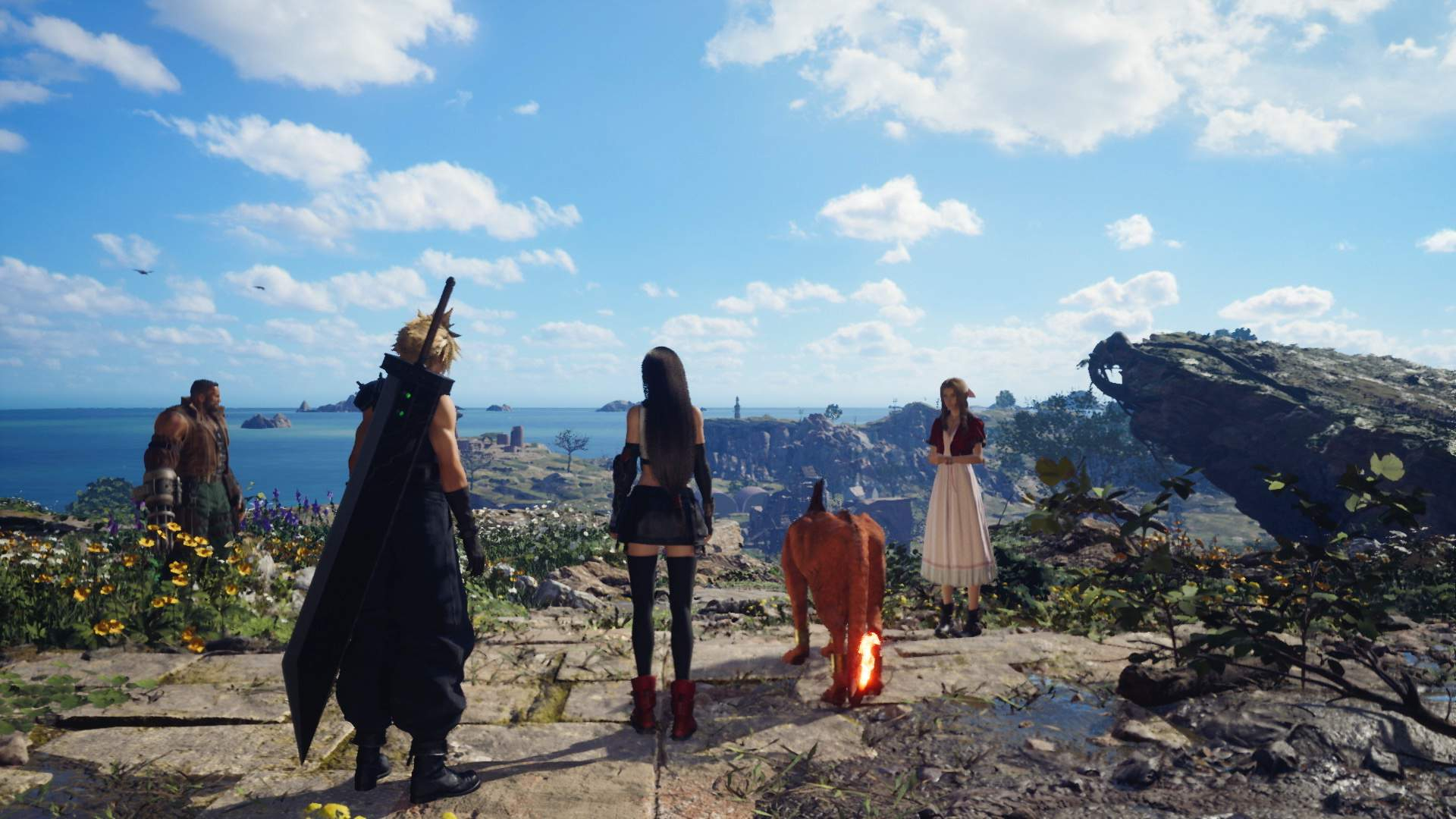
Final Fantasy VII Rebirth takes place shortly after the harrowing events of the previous game. Cloud, Aerith, Barret, Tifa and Red XIII have left the city of Midgar and have taken to the outside world in search of the elusive and dangerous Sephiroth. During the ensuing epic quest, they meet new allies like Yuffie the ninja (among others), learn long-forgotten secrets and face their greatest obstacles yet.
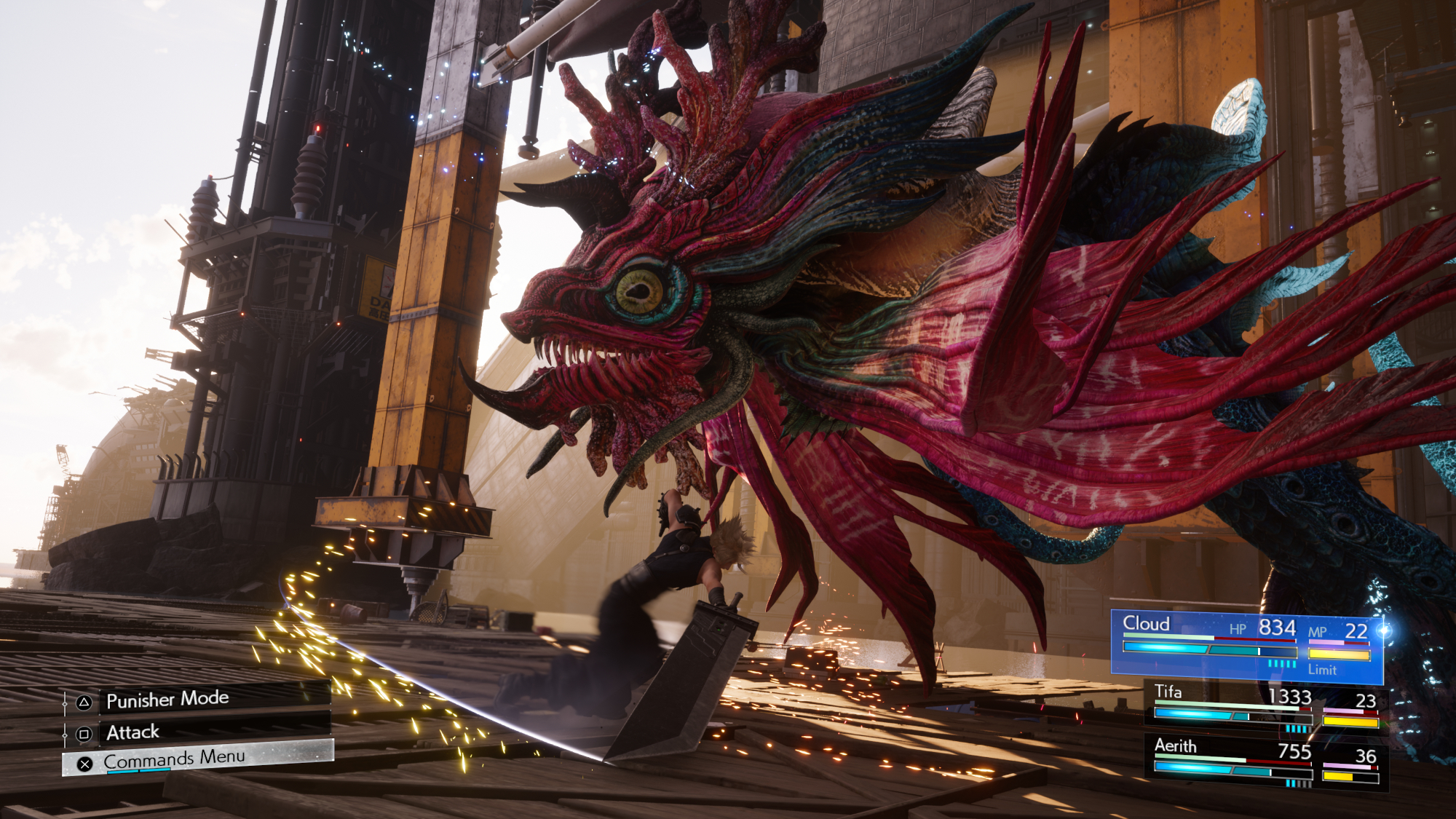
Remake’s ending made it seem that we would experience a completely different story from the original Final Fantasy VII. While there are indeed many new plot threads, the narrative generally follows the major beats of 1997’s legendary JRPG. That said, even those familiar plot elements don’t always play out as expected — which keeps things fresh. The brand-new storylines are not only intriguing but blend well with the established narrative.
Like its predecessor, Final Fantasy VII Rebirth does an excellent job of fleshing out the core cast of characters and making them more relatable and believable. I know that’s a given since the current game can utilize modern graphics and voice acting, but it’s still great to see new layers to iconic characters. Despite the world-shaking events, the narrative focus remains on the main cast — which makes the story more appealing.
The art of war
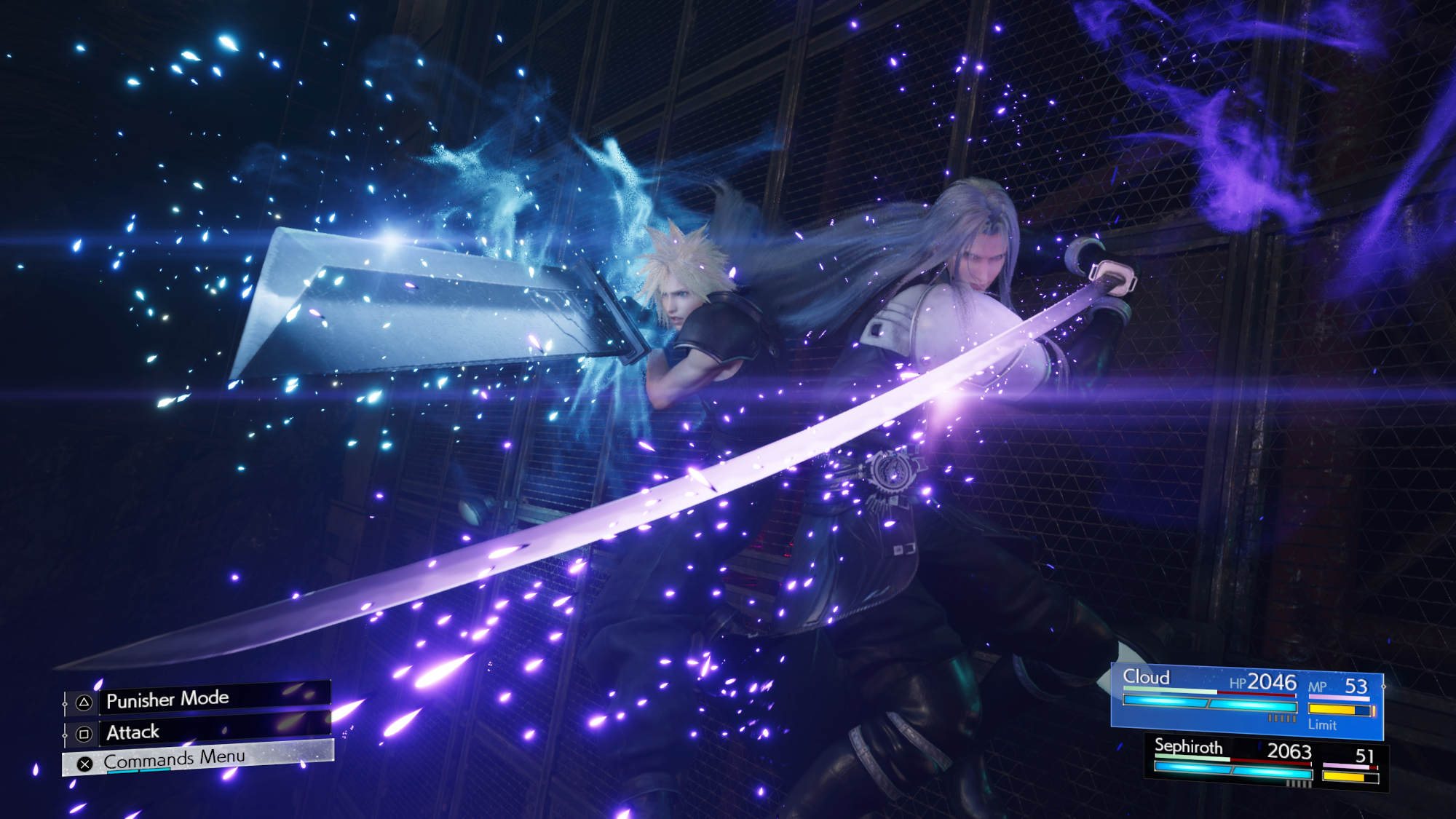
Final Fantasy VII Rebirth’s combat mechanics haven’t changed from before, which is great considering how said mechanics were (and are) so enjoyable. Since combat happens in real-time, you’ll need to quickly react and adapt to the changing tide of battle. The Active Battle Time (ATB) system forces you to wait for the ATB meter to fill before you can unleash special attacks or spells. This encourages you to strategize, which keeps enemy encounters engaging.
Attacking foes with physical and magical attacks puts them in a “pressured” state. Once the pressure bar (under a foe’s health meter) fills, they become “staggered” and mostly defenseless — which is the best time to unleash your most devastating attacks. Figuring out how to stagger adds another layer of strategy to battles.
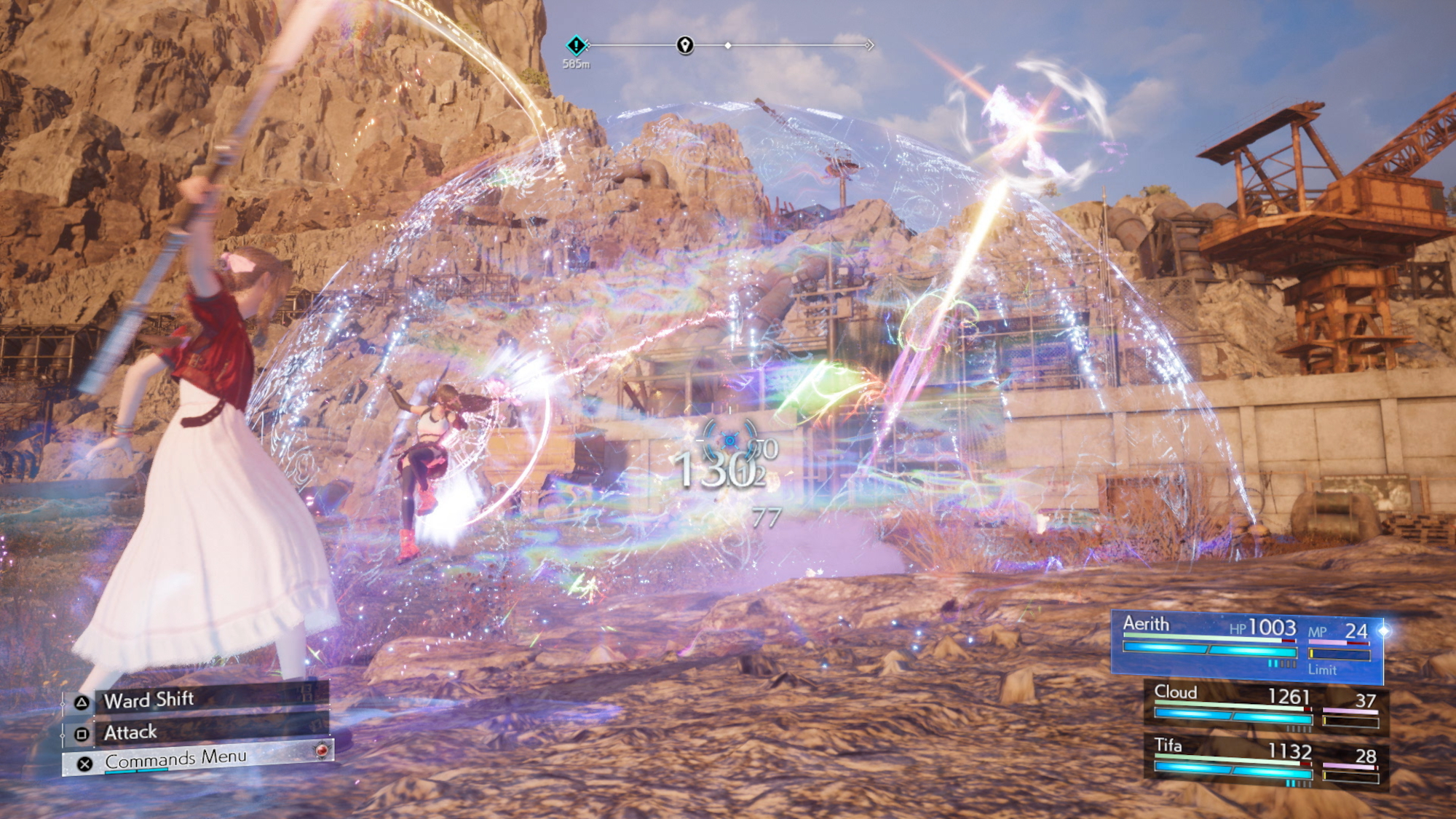
Every character has specific Ability attacks, depending on the weapon they’re using. Attack-based Abilities hit harder than standard attacks, and certain elemental-based Abilities allow you to use magic attacks without consuming Magic Points (MP). Abilities can often get you out of a jam or help you finish a foe off quicker. This makes them an essential tool during combat.
Synergy Abilities have two characters working in tandem to perform powerful attacks. Like Abilities, Synergy attacks can turn the tide of battles if things aren’t going your way. Every character pair has different Synergy attacks, so it’s good to experiment with different parties to see what these Abilities can do. Cloud’s relationship status with characters also affects Synergy.
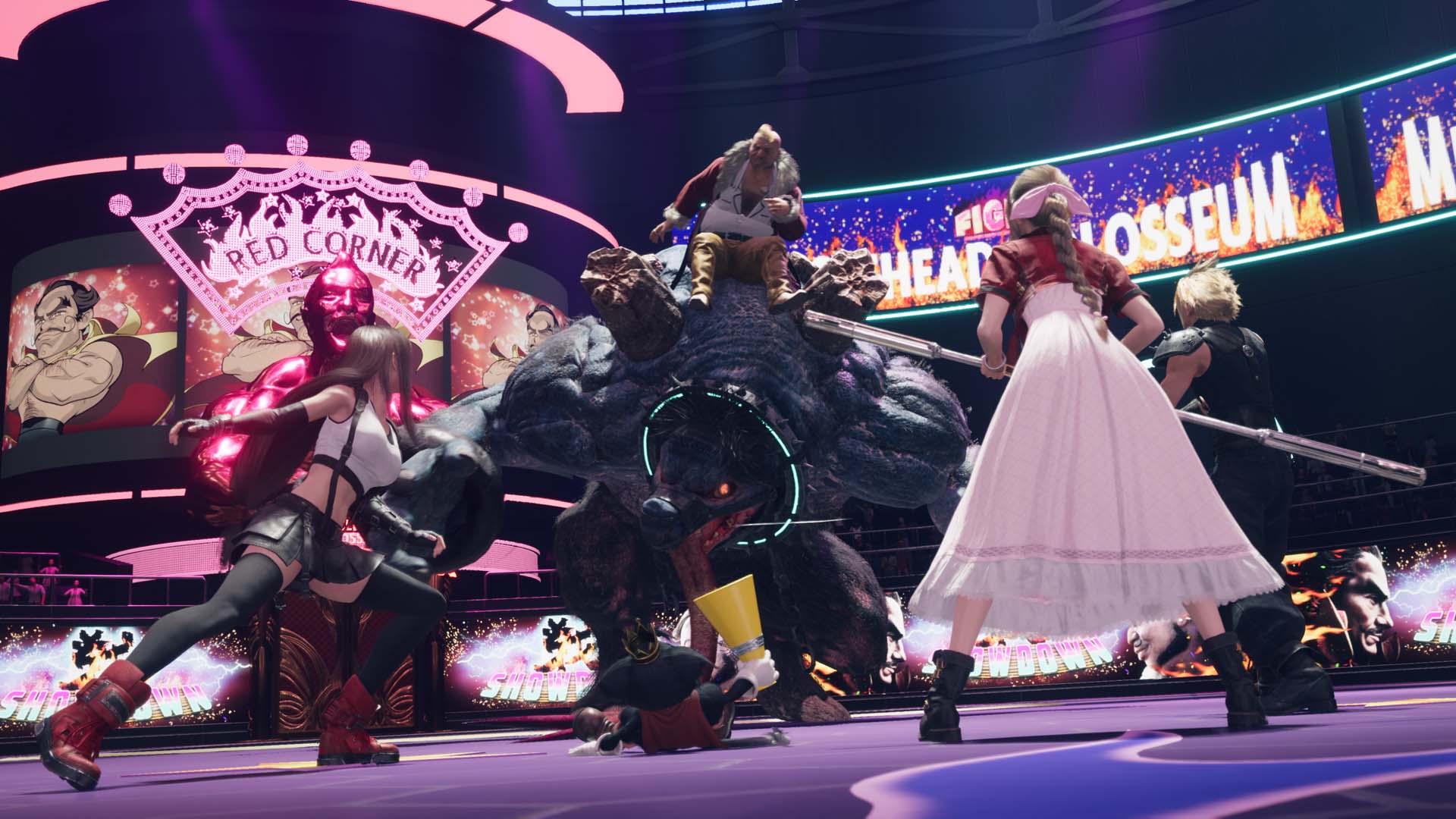
The materia system returns and is virtually identical to the last game and the original. Slotting materia in your weapons and gear gives you access to spells and buffs like an ATB boost. Frequently using certain materia raises its level. This unlocks more powerful spells or stronger buffs. Materia isn’t restricted to any given character though, allowing you to create a party to suit your playstyle. While there aren’t any restrictions, certain characters have stronger affinities toward magic or melee combat.
Summons also make a return in Final Fantasy VII Rebirth. To utilize these powerful creatures in battle, you’ll first need to defeat them in a combat simulator. Thankfully, you can make these battles easier by solving mini-puzzles in hidden locations associated with a Summon. As with Synergy and Ability attacks, Summons are invaluable if you’re on the verge of defeat.
Growing stronger
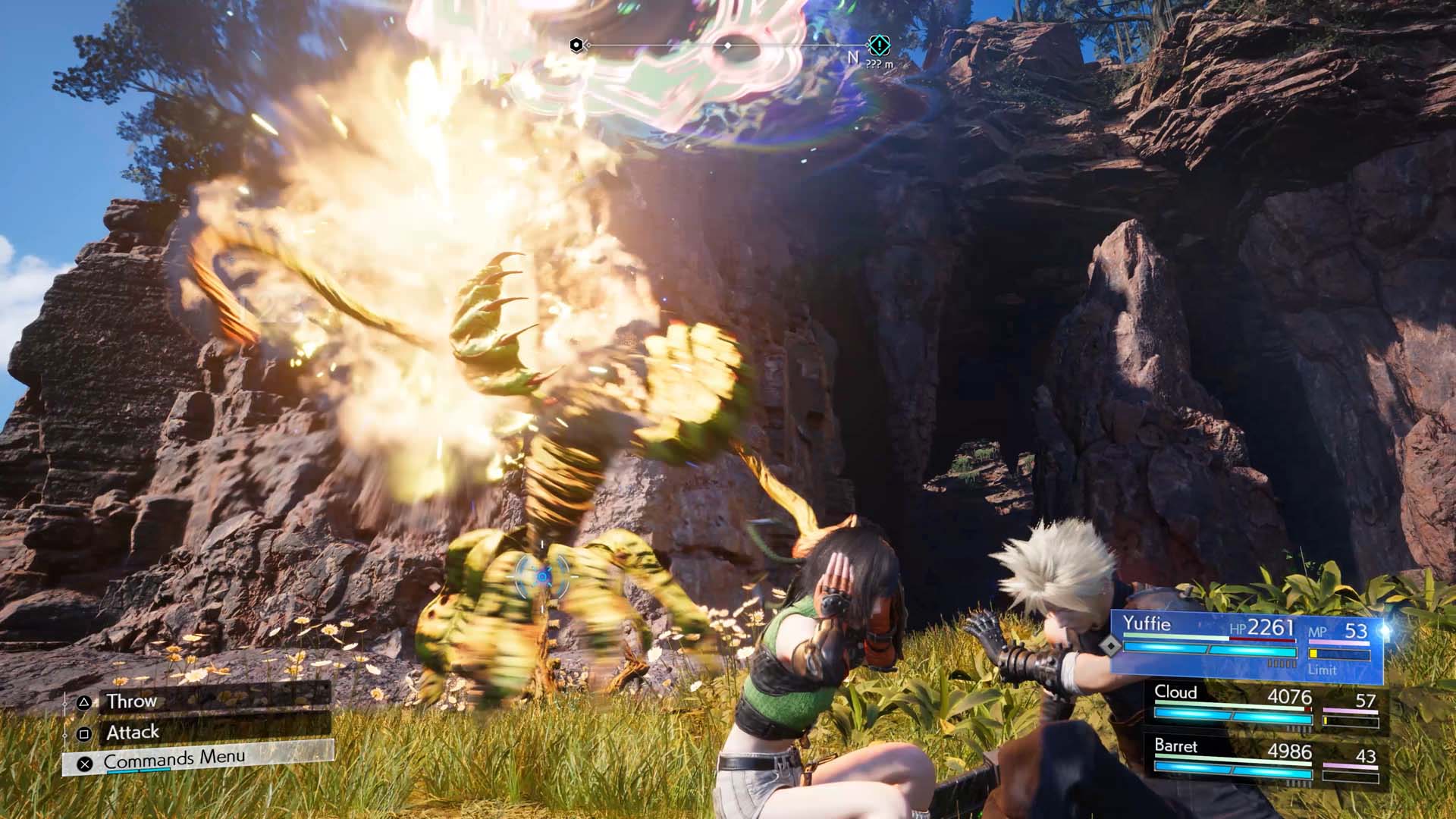
Final Fantasy VII Rebirth features a flexible customization system that lets you tailor characters to fit your preferred playstyle.
You earn experience points by defeating foes, completing missions and progressing the story. Earning enough experience raises your level, which not only makes you stronger but also unlocks abilities or buffs via the new Folios system. Similar to Final Fantasy X’s Sphere Grid, unlocking new nodes on the Folios grid unlocks nearby interconnected nodes. Completing missions is the best way to earn points to unlock nodes on the Folios grid.
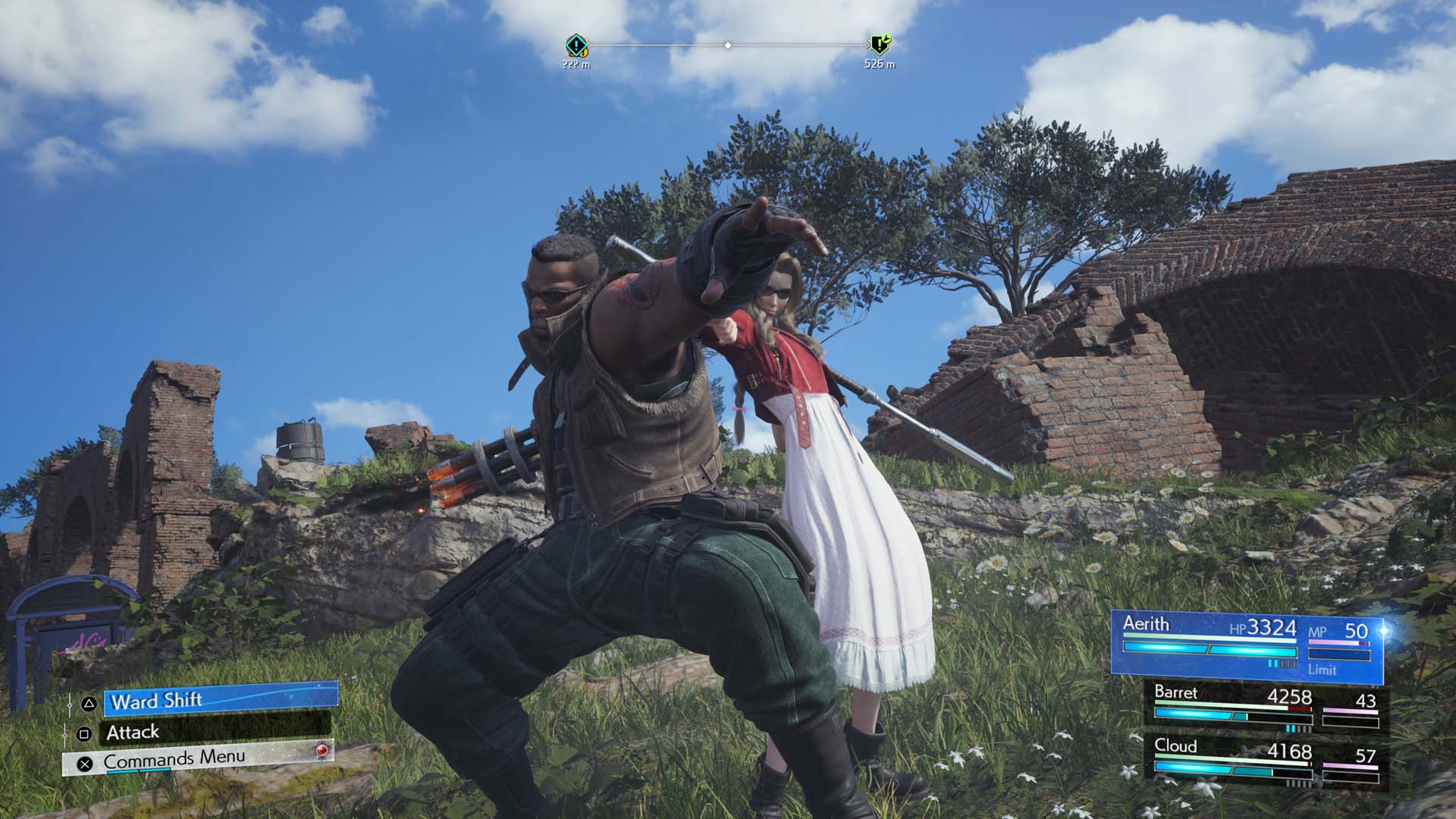
Equipping the right weapons, armor and accessories is crucial. You’ll find new gear as you progress and it’s a good idea to mix and match different sets of equipment to see what works best for you. Changing equipment is also a good idea if a particular battle seems impossible to win. Also, keep in mind that you can only slot a certain amount of materia into your gear. Generally, you’ll want gear with a lot of materia slots.
The new transmutation system allows you to create equipment, so long as you have the requisite materials to make said equipment. Every location teems with materials, such as plants or ores, so it’s not hard to find crafting materials. However, you can only obtain certain materials by completing specific quests. As for transmutation, the process is straightforward — simply requiring you to select an item to create from a list.
Fun and games
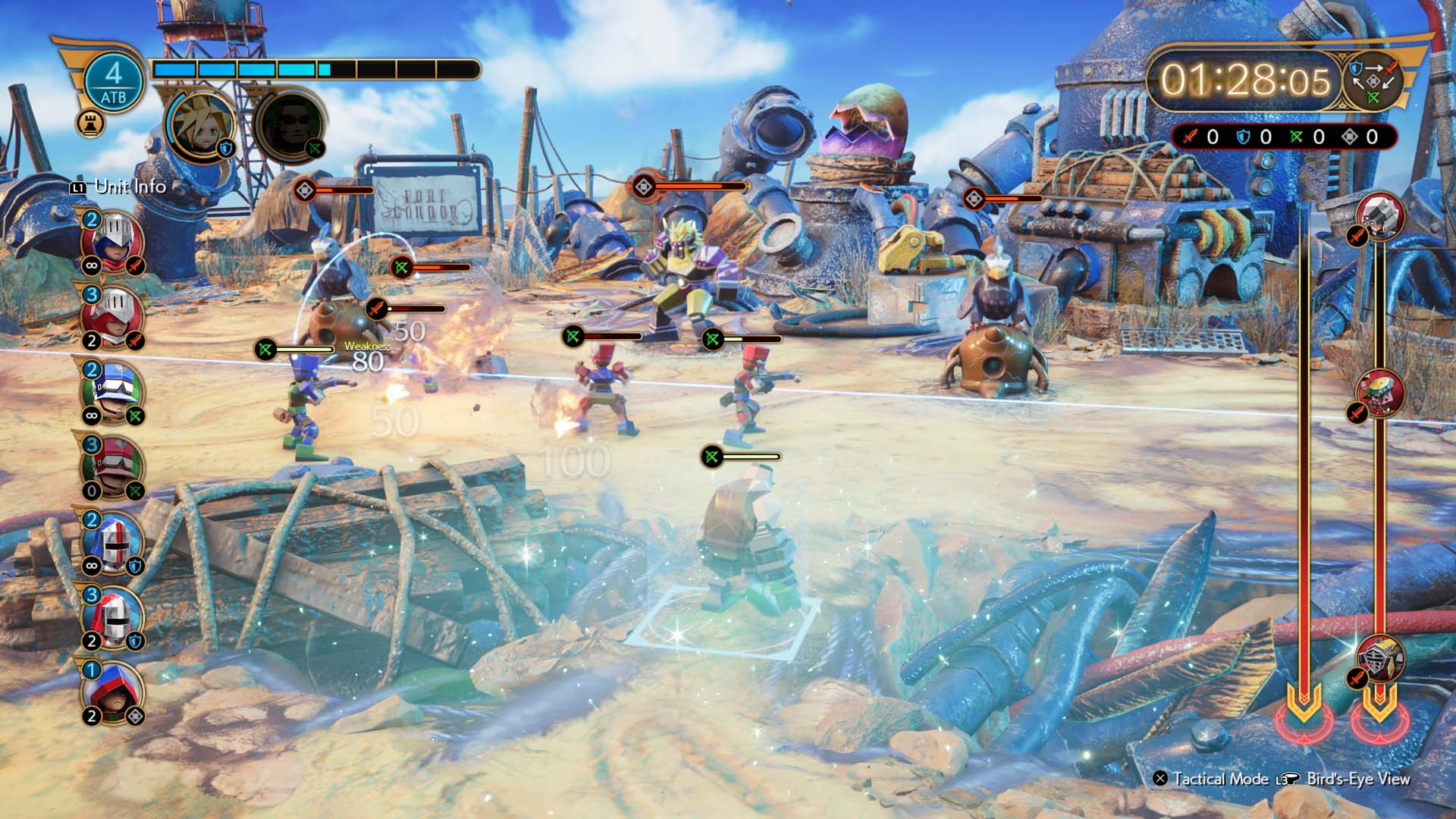
Final Fantasy VII Rebirth contains a slew of side quests and mini-games. Side quests are often narrative-based affairs that have you completing tasks for some of the folks you encounter. Since they provide a deeper insight into the world, side quests are almost always worth your time — though some are better than others.
Some side quests involve members of your party or are important to them. Completing these quests deepens your bond with party members, which in turn opens up new Synergy attacks. Certain elements of the story also change, depending on your relationship status with characters, though I’d have to play the game again to see what changes. Regardless, this is a cool mechanic from the original 1997 game.
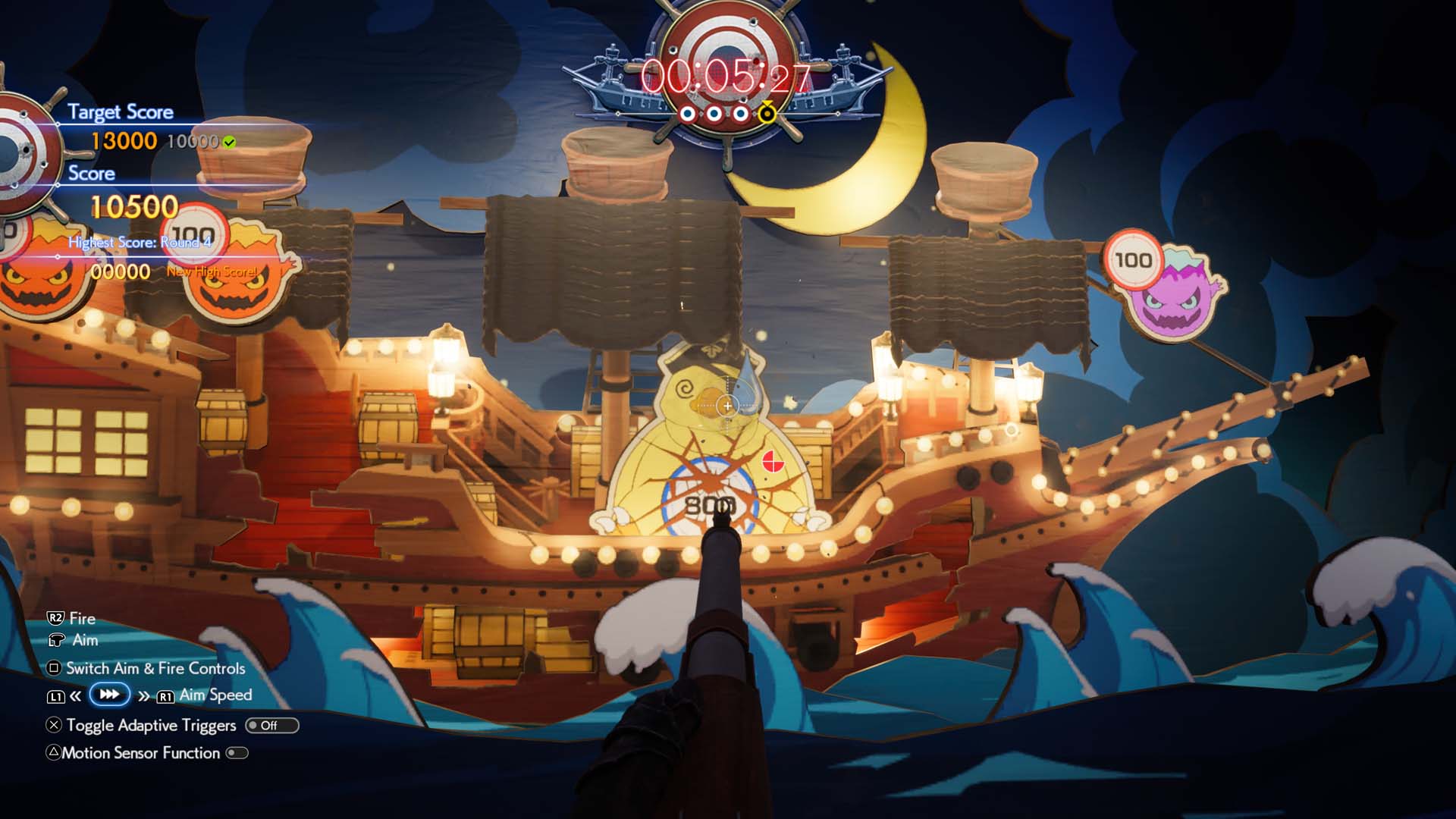
The sprawling maps pack a ton of activities and events. This includes rare monsters to slay, lifestream fountains, Summon temples and much more. While these missions aren’t always as engaging as the aforementioned side quests (they can sometimes get repetitive), they’re a great way to earn experience points and take in the sights.
There’s no shortage of mini-games to check out. The Queens Blood card game can become an obsession like The Witcher 3’s Gwent. There are chocobo races, the Fort Condor RTS game (complete with polygonal graphics), pull-up challenges and more that appear even during the latter parts of the game. I found most of the mini-games fun, but I wasn’t a fan of being forced to complete some to progress the story. I hope you like Queen’s Blood.
The whole wide world
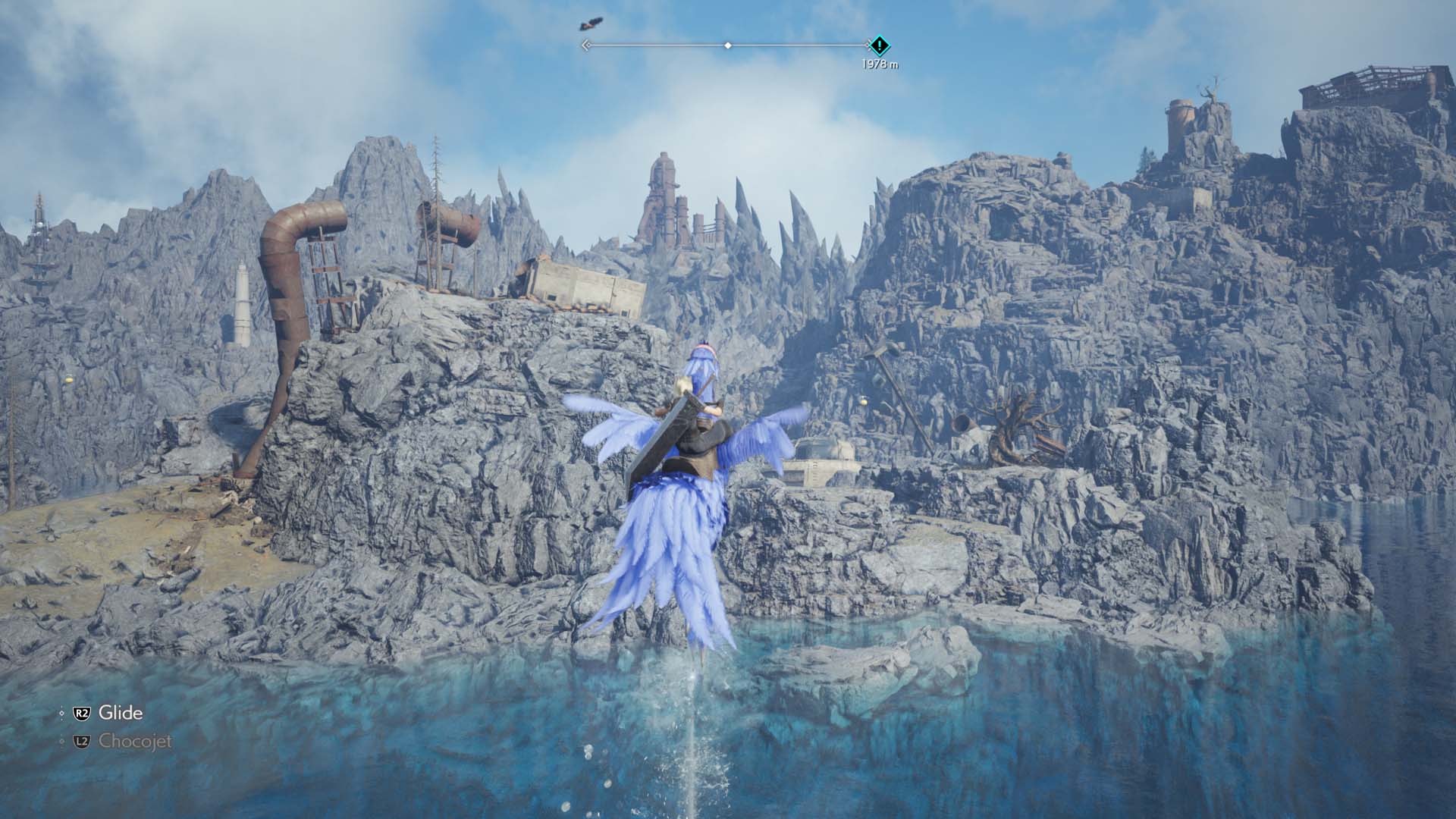
Final Fantasy VII Rebirth isn’t an open-world game like Grand Theft Auto V, but its expansive maps certainly feel open-worldish. The diverse locales include dense jungles, arid deserts, muggy swamps — and some fantastical environments. Interior locations such as amusement parks, abandoned factories and ancient temples are just as varied.
As I said above, each locale teems with activities to partake in. It’s also worth simply exploring the lands since there are certain events not marked on the map. Exploration almost always yields rewards, both in terms of items and lore. Thankfully, there are many ways to quickly traverse the world, including riding chocobos, a buggy and more. You can also fast travel by way of chocobo stops dotted throughout the maps.
Fantastic presentation
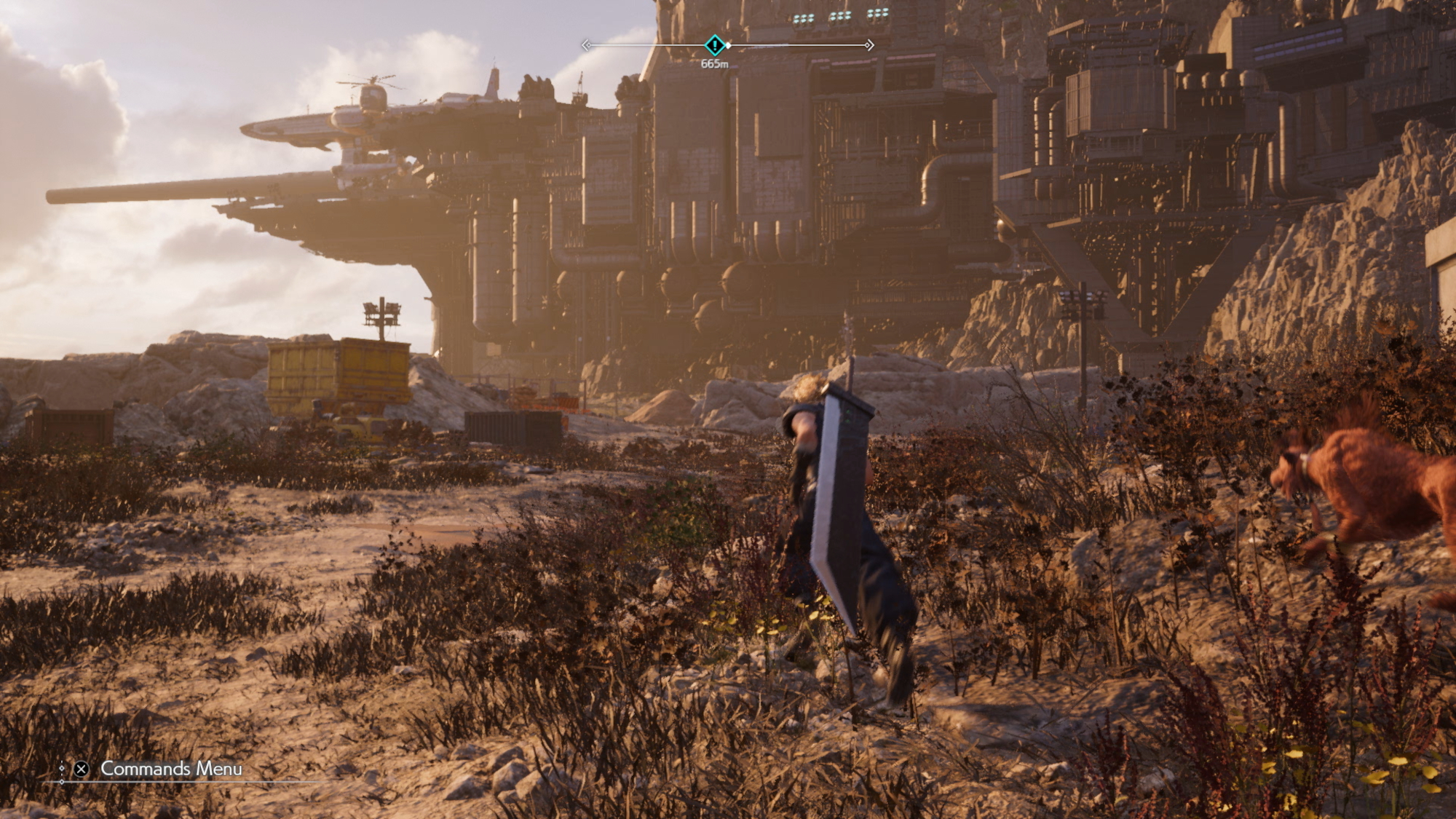
Though Final Fantasy VII Rebirth runs on Unreal Engine 4, the PS5’s superior hardware helps the game look better than its predecessor. Though there are some questionable textures when you venture off the beaten path, the game generally has impressive visuals. Even if the graphics aren’t exactly “next-gen,” I think the stylized yet detailed aesthetic works marvelously.
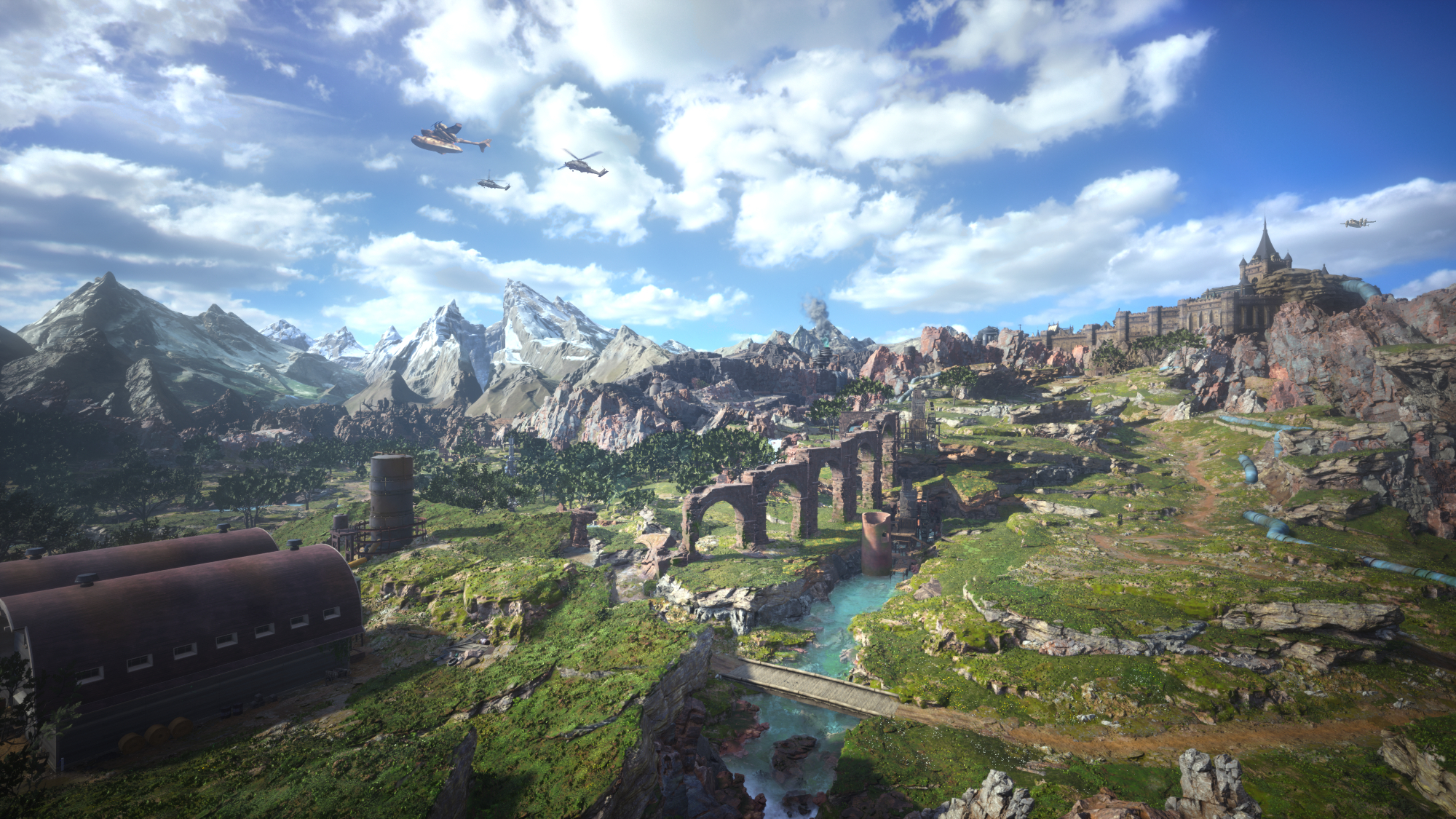
Characters receive the most attention. Stitching on clothes or cracks in armor come through vividly. The same is true for facial expressions, which can have a great deal of subtlety — allowing the characters to be more expressive without saying a word. These iconic characters have never looked better than they do here.
Music is just as impressive as the visuals. The classic Nobuo Uematsu-composed themes blend nicely with the newer tunes, creating a feast for the ears. I particularly enjoy the way some of the older tracks get remixed to fit certain scenes — either taking a lighter or darker tone where applicable. It’s hard to match the epicness of the original soundtrack but FFVII Remake does a damn fine job of it.
The story continues
There’s more I can say about Final Fantasy VII Rebirth but I think this review gives you a good idea of what it contains without spoiling anything. If I could summarize this title in a single word, it’d be “delightful.” This game is just a joy to play.
In a time filled with so many cynical cash-grab remakes, it’s nice to get a remake made with such passion and care. As I said up top, you’re getting your money’s worth with this gem thanks to its abundant content, precise gameplay, killer presentation and emotional narrative. Final Fantasy VII Rebirth is one of this generation’s must-own titles.

Tony is a computing writer at Tom’s Guide covering laptops, tablets, Windows, and iOS. During his off-hours, Tony enjoys reading comic books, playing video games, reading speculative fiction novels, and spending too much time on X/Twitter. His non-nerdy pursuits involve attending Hard Rock/Heavy Metal concerts and going to NYC bars with friends and colleagues. His work has appeared in publications such as Laptop Mag, PC Mag, and various independent gaming sites.
